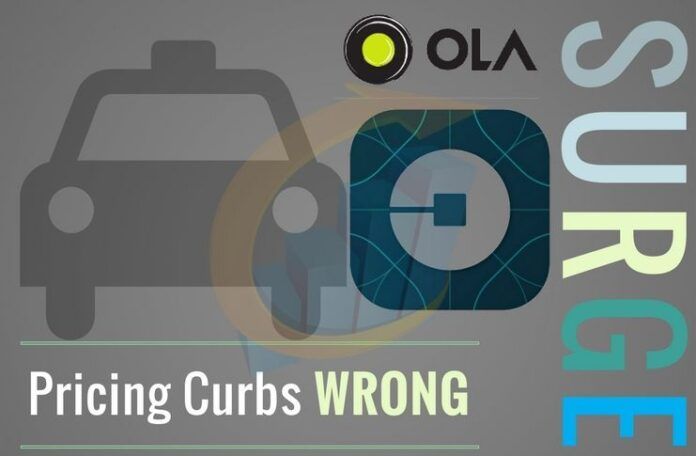
[dropcap color=”#008040″ boxed=”yes” boxed_radius=”8px” class=”” id=””]T[/dropcap]he Delhi High Court’s direction on Thursday to app-based cab services Ola, Uber, and other taxi operators to not charge more than the stipulated rates after August 22 is an unnecessary intervention in the functioning of market forces. It would, however, be wrong to blame only the court ruling as meddlesome; the Central and Delhi state governments have also been intruding into the pricing of app-based cab services (along with other services and goods). But an equally, if not more, worrisome feature is the support that price controls enjoy among people. This is the reason that every politician is opposed to surge pricing.
Only a fool learns from his own mistakes, said Bismarck, while the wise man learns from the mistakes of others.
The real problem is that reason and prudence have been banished from public discourse; they have been replaced with sentimentalism and populism. So, any argument in favor of surge pricing would attract ad hominem attacks: the arguer would be accused of a stooge of big companies like Ola and Uber; he would be portrayed as an ogre in support of the fleecing of city commuters. All facts and explanations would be ignored: for instance, app-based cabs generally provide cheaper and more convenient services; they are comparatively safer because the driver knows that his whereabouts can be traced; these services have made many people reduce the use of personal vehicles.
As for surge pricing, it is a globally acceptable practice. It is exceedingly hypocritical on the part of the government to check surge pricing when its own departments are involved in such practices. What else is the Tatkal service of Indian Railways? In other sectors, too, variable pricing is common. What else are ‘happy hours’ that restro-bars promote? What are off-season discounts offered by hotels in touristy locations?
[dropcap color=”#008040″ boxed=”yes” boxed_radius=”8px” class=”” id=””]F[/dropcap]urther, even if the government checks surge pricing by app-based cab services, would it translate into relief for commuters? The answer is an unambiguous ‘no.’ The app-based cabs may simply refuse to ply if the weather is inclement or there is some other disturbance. The commuter would have to go back to conventional taxis and auto-rickshaws whose arbitrariness and fleecing ways are well-known, and about which neither the Delhi government nor the Central government has been able to do anything. This is primarily because action against them would be regarded as anti-poor while measures to control app-based cab services, run by big companies, are deemed as sensible intervention. It is another matter that the bigger beneficiaries of surge pricing are drivers rather than the companies under whose banner they operate. Auto-rickshaws charging exorbitantly is okay, but an Ola or Uber cab asking for more is not.
Politicians and policy makers of India are still wedded to the dogmas of the discredited and largely abandoned ideology of socialism. We still have not developed horror for statist interventions like price caps, despite the obviousness of the consequences: they result in an augmented role of politicians and bureaucrats. Now, given the kind of politicians and bureaucrats we have in our country, greater discretion to them invariably translates into more complicated procedures, corruption, and shortages. This is not just theory; the country witnessed shortages in the pre-liberalization era. There were queues, quotas, licences, permits, etc., not only for businessmen but also the man in the street. One was harassed and tormented for something as innocuous as building a house (cement quota) and getting the daughter married (sugar quota).
India is not the only country where price controls have caused trouble for ordinary people; in the US, too, regulated fuel prices after the oil shock in the 1970s failed miserably.
Only a fool learns from his own mistakes, said Bismarck, while the wise man learns from the mistakes of others. Indian policy makers never learn.
- Liberty Is Penalized, Violence Goes Untouched - December 21, 2019
- Rahul’s Howdy bloomer - September 22, 2019
- Chidambaram’s hypocrisy - August 22, 2019











Essays like this are so important to brdnaeoing people’s horizons.